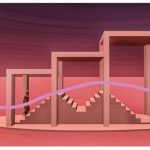Maryann Ng’endo Kariuki
- Arhitektuuriteaduskond
- Sisearhitektuur
- ma
- Rethinking the Prison Cell: Designing Aspects of Self Identity for Incarcerated Women through Spatial Design
- Juhendaja(d): Andrea Tamm, Edina Dufala Pärn, Gregor Taul, Jüri Kermik, Keiti Kljavin, Silver Sternfeldt
- A1

Modelled to exert discipline, power and control, the criminal justice system has historically been regarded as a system that is gender insensitive, in terms of its structures, protocols and routines. Therefore, not accommodating the needs of female inmates both emotionally and physically. The sense of powerlessness related to the struggle and need for self-definition in penal institutions is an overlooked yet important aspect in how inmates associate with themselves, their environment and the people around them. The thesis addresses the gap that lies between the admission of a female inmate into a prison institution and the importance of the prison cell to support their transformative capacities as human beings up until their release. The methods of data collection that the thesis used included observations, face to face interviews and use of questionnaires. The information was then recorded through photo taking and audio recording. The results from the interviews were then transcribed and an open coding thematic analysis was done to identify the prominent themes within the responses given. The thesis concluded with the proposal to create a new prison cell design concept. Through the creation of three distinct phases; phase 1: reflection, phase 2: Transformation, phase 3 : Integration. A creation of transformative spaces that promote self-controlled actions as part of acknowledging the importance of forming positive relations with the spaces inmates occupy as one of the key elements for a successful prison to community model for the inmates. After serving time, the expected result is that the inmate can be able to successfully transition back to the community with a much better chance at easing into the positive aspects of themselves and their community.
